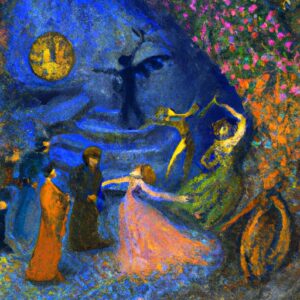What are prima and dopo in Italian?
One of the first things all students need to learn when studying a foreign language is how to talk about events in time.
In English, to do this we use the words before and after. While in Italian, these two words translate as prima and dopo.
These are pretty simple words that directly translate their English counterparts, but they can become tricky to use if we do not know which prepositions and verb tenses to use with them.
Let’s start this guide on how to use prima and dopo in Italian.
How to use prima che and prima di?
As has been mentioned before, prima means before in Italian and can be used either with the conjunction che or with the preposition di and its derivates del, dello, della, dei, degli, delle.
- Prima che introduces a temporal clause and must be used in combination with the subjunctive mood (congiuntivo) of the verb.
Let’s have a look at some examples:
Voglio partire prima che faccia buio.
I want to leave before it gets dark.
Prima che tu esca, voglio dirti una cosa.
Before you go out, I want to tell you something.
Spero di arrivare prima che inizi a nevicare.
I hope I can get there before it starts snowing.
- Prima di on the other hand must be used with a verb in the infinitive or before nouns or pronouns.
Remember, if the noun would take a definite article, you need to use a preposizione articolata: del, dello, della, etc.
Prima di uscire, pettinati.
Brush your hair before you go out.
Prima di te ci sono io.
I come before you.
Prima della partita siamo andati a bere una birra.
Before the match, we went for a beer.
Practice with Quizlet
Here's a set of flashcards and quizzes to practice this grammar topic.How to use dopo che, dopo, and dopo di?
Dopo in Italian means after and it is used to introduce temporal clauses that talk about an event that is subsequent to the other.
- Dopo che
Unlike prima che, dopo che does not require the subjunctive mood. We can simply use the indicative mood of the verb.
Of course, depending on what we are saying, we can use all the verbal tenses: present, past, or future.
Dopo che finisci metti tutto a posto.
After you finish put everything back in order.
Dopo che sono uscita è arrivato Daniele.
After I left Daniele arrived.
Ti mancherà dopo che sarà andato via.
You will miss him after he leaves.
- Dopo
Dopo can also be used directly with nouns or with a clause starting in the past infinitive (essere andato, aver mangiato, etc.)
Dopo la festa siamo andate a casa.
We went home after the party.
Dopo essere andato in banca ho pranzato.
After having gone to the bank I had lunch.
Dopo aver mangiato mi sono sentita male.
I felt sick after having eaten.
- Dopo di
The only occasion in which we’ll use dopo di is with personal pronouns.
Dopo di te ci sono io.
I come after you.
Io sono entrata dopo di loro.
I went in after them.
Voi siete arrivati dopo di noi.
You got here after us.










2 Responses
Why “aver mangiato”? The past infinitive is “avere mangiato”, isn’t it?
E’ uguale. Va bene sia “aver” sia “avere”. E’ questione di metrica. 😀